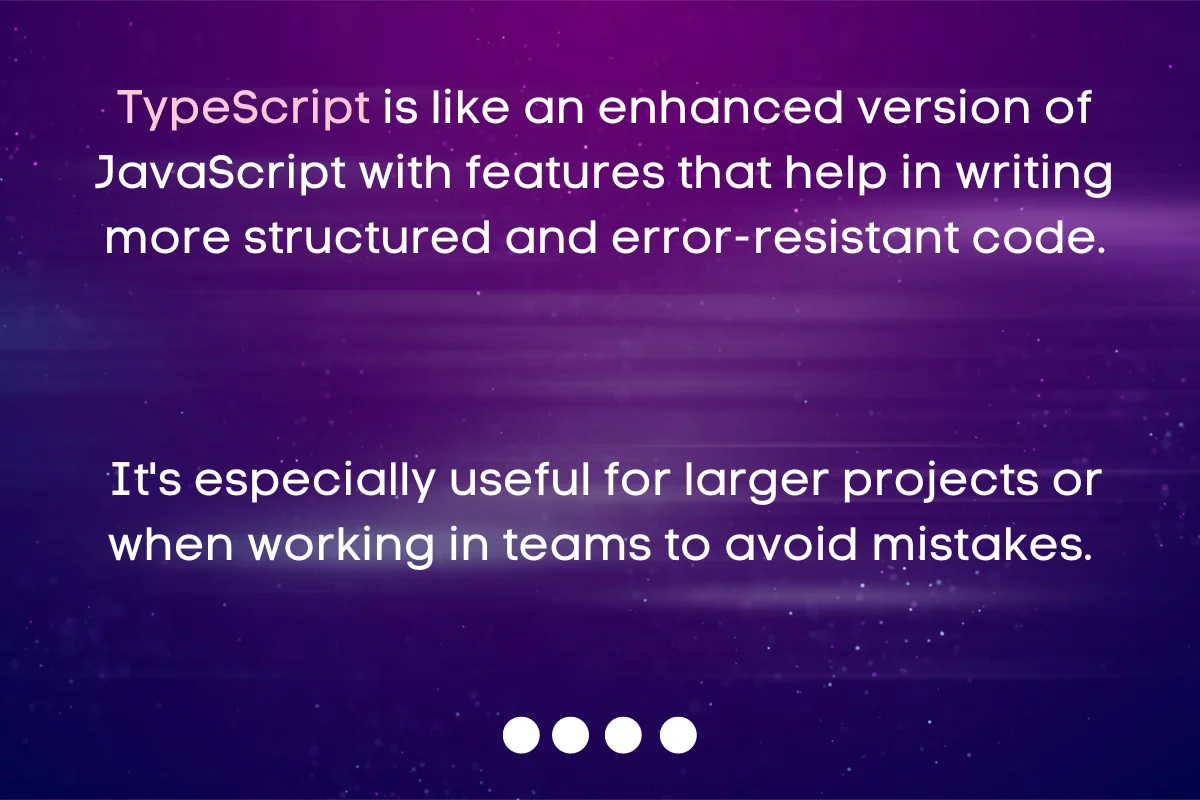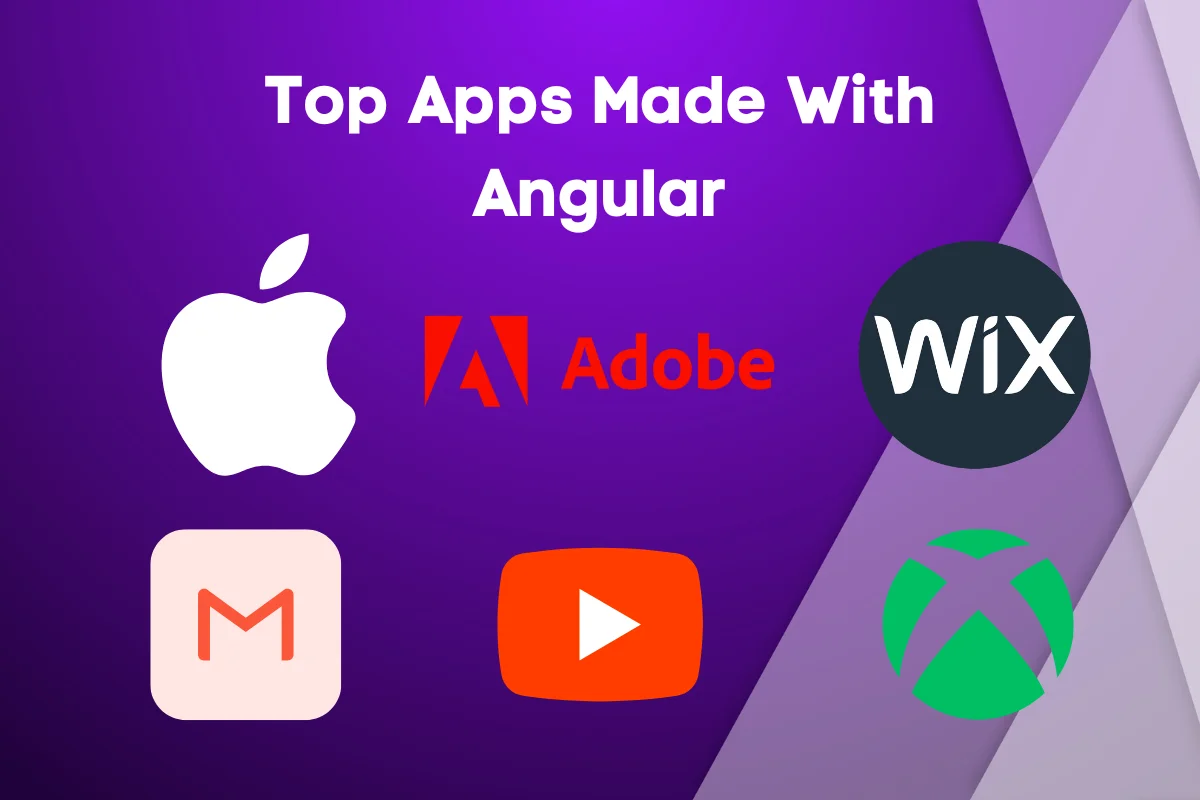In this article, we’re going to see if using Angular for mobile can be a good practice. Several frameworks on the market can be used to make an efficient app, so choosing the right one can be a little complicated.
If you’re looking for information on how using this framework can speed up the development process, cut expenses, and help you create a high-geared app, you’ve come to the correct place.
What is Angular framework?
It’s an open-source framework for JavaScript that is based on TypeScript. Angular makes it easy for developers to build and launch cross-platform applications that run smoothly on Android, iOS, or desktop. Because of its dynamic components, developers can easily design complex mobile apps with fewer lines of code.

Angular was originally a side project by a Google employee to facilitate the web development process. It was introduced as AngularJS in 2010. Interestingly, it was never meant for complex applications and websites.

After ups and downs, it’s become a well-known tool among developers, along with React and Vue. As it made app development more straightforward, it was adapted quickly at the time. Some big names, like Indiegogo and Colgate, have used it to create their websites and applications.
It’s possible to create progressive web applications with the Angular framework. These apps are useful for those who don’t need to put their applications on app stores for any reason. We’ll get deeper into this in the following sections.
Angular Features
As you may know, dozens of frameworks exist to develop an app for mobile. You may already know how to build a website using Angular, and you’re asking if this framework fits your requirements for mobile app development.
The first thing to know is that this JavaScript framework is not primarily designed to build native apps. (A native application is software specifically made to work on a particular device or platform.) For native applications, it’s usually recommended to use Kotlin (for Android), Swift (iOS), and other frameworks.
But if you need to develop a high-speed application that works smoothly on different platforms, mixing Angular with other technologies can come in handy (we will cover them later in the article).
Here, we list the features of Angular to help you with your decision.
- Active community: A key benefit of this technology, rather than Google support, is its community’s size and activity level, which offers many resources for developers working on mobile applications. Moreover, the documentation is changed often so that users can always find the most recent data.
- TypeScript-based: Angular is a web application framework that is based on TypeScript. It offers static typing (to avoid mistakes) and powerful tools for making scalable, maintainable apps with a component-based design, which is great for working on big projects as a team.
- Testing capability: The great thing about this framework is that it comes with all the testing tools you need, so developers can build software faster and feel comfortable refactoring anytime. Another significant benefit is that frequent testing helps developers reduce errors, so they don’t have to spend as much time scanning the codes.
- Modularity: Like other frameworks, using modules allows you to replace or reuse the components. This feature results in higher performance for your application.
- UI Library: Because the components in this library are built using industry best practices that have been thoroughly tested and refined, you can make your application much more quickly.
Pros of Using Angular For Mobile Application
The main advantages of this JavaScript framework are better scalability, great adaptability, and a faster development process. An application developed with this Google-backed framework won’t come up short in terms of performance and UX.
Additionally, we’ve listed the benefits of using Angular for mobile app development:
- Code reusability: Thanks to a component-based structure, developers can reuse different modules that reduce code writing. It also makes the creation process faster and optimises maintenance and updates.
- Practical CLI: CLI is a tool you use by typing commands into a text-based interface (like a terminal or command prompt) instead of clicking around in a graphical interface. The framework has several optimisation features that minimise bundle size and boost app speed.
- Native-app experience: By implementing Ionic or Nativescript, you can create apps that have the look and feel of native apps. This feature will boost the user experience, which is crucial for any product.
- Localization support: There are some issues when people use apps in different locations, and these problems are usually related to language preferences. With Angular, you can guarantee every user a smooth, personalised experience.
- Two-way data binding: It means any change made in the data will be applied in the view section, and any change made in the view will also be reflected in the data.
To wrap this part up, you can expect high performance from your application as the framework provides features like dependency injection and differential loading.
With the first, classes no longer rely on themselves, making it easier to manage and maintain code. With the latter, you’ll have a faster loading time that will please the user.
Cons of Angular For Mobile App Development
After reviewing the advantages, let’s explore the downsides of using this framework for your next project.
- Learning journey: In the basics, it’s simple to understand. But beginners might hit a brick wall when they go further with Angular for mobile.
- SEO compatibility: It’s not the best mobile framework in terms of compatibility with search optimisation practices.
- Debugging issues: Debugging is critical to app creation. Developers may experience difficulty working with scopes and values when using the framework.
- Too many versions: The framework has undergone numerous changes over time, which can pose challenges to the development process.
Apps You Can Build with Angular
As mentioned earlier, the main purpose of Angular was to enhance web app development. With the help of Ionic or NativeScript frameworks, it’s possible to develop an app for a mobile phone.

As you can see in the image, you’ll have many options using this Google-backed technology. In the following, we’re going to discuss what kinds of apps you can create using this open-source framework.
Progressive Web Applications (PWA)
PWAs are becoming popular because they offer a great user experience for people. Developers can benefit from this technology as they can adapt their applications to the screen size and enhance loading time.
Since this kind of application has the feel of native apps, many companies opt to build a PWA. App stores have their advantages, such as push notifications and APIs, but sometimes it’s wiser to run your app independently of app stores.
By using Angular to create progressive web applications, you’ll bring offline functionality and a mobile-friendly experience to your project.
Server-side Rendered (SSR) Apps
Current applications are going towards the way that everything is done on the server. This can be seen in numerous cloud services on the market.
Using Angular, you can make SSR apps with high speed and performance. The loading time is notably reduced as the data is rendered on the server (and not on the user’s device).
Single Page Applications (SPA)
Single-page applications, or SPAs, are Web apps shown to the user through a single HTML page. This makes them more responsive and more like desktop or native apps.
The Google-backed technology has features that let developers create lag-free and fast-loading applications. Providing an excellent user experience is a reason for the popularity of SPAs.
Stunning animations
If you plan to create animations that attract users, you can use the framework. EdTech application is a good example among educational platforms. You can deploy appealing visuals to get new app users and have tonnes of downloads.
Top 5 Angular Mobile App Examples
After exploring the benefits and disadvantages, here are the top mobile applications developed by Angular technology:
- Gmail: It’s one of the most popular email apps in the world, with more than 10 billion downloads. As mentioned in this article, the localisation features allow this Google app to support more than 100 languages.
- YouTube TV: The new generation of TV is here with YouTube. You can stream your video of interest on this service. It’s worth knowing that the PlayStation version is made with AngularJS.
- Xbox: You can find this gaming console in a lot of homes. Microsoft has used Angular to design the website and mobile application.
- Mixer: It was a video game live-streaming service founded in 2016. The Twitch rival implemented the framework to offer single-page updates.
- Forbes: The business magazine is the biggest name in the industry. It’s designed with AngularJS, and users can easily look through their articles to gain more knowledge.

As you can see in the image, other giants like Apple, WIX, and Adobe have used this framework to develop their mobile apps or websites.
You can also check out madewithangular.com to find projects done using the web framework.
Frequently Asked Questions
Both facilitate cross-platform mobile app development and have Google’s support. They both have strong capabilities. While Angular leverages TypeScript to bring web development to mobile through integrations with frameworks like Ionic, Flutter is used for native mobile apps built with Dart.
Yes, as mentioned in the article, because of its solid data-binding features and vast framework capabilities, it’s useful for creating dynamic and complicated user interfaces, particularly for web applications.
In fact, its broad capability can cause needless complexity and longer load times for simpler projects, let’s say landing pages. Simpler technologies may be more effective in these situations.
Conclusion
We learned that implementing Angular for mobile can be a good strategy for your mobile application development. Its ready-to-use components, active community, and testing capabilities make your development operation well-organised.
We explained how you can use this technology to create your desired mobile app. You can build various types of software, such as progressive web apps and single-page apps.
If you need to create a native app, you can use platforms like Kotlin and Swift. For an application that runs seamlessly on the web and mobile, you might consider using Angular.







